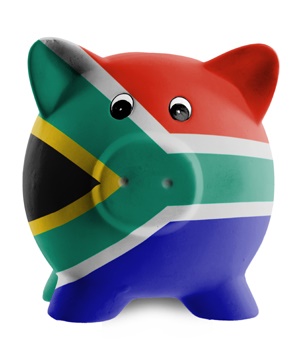
Cape Town - At 15.4% of its GDP, South Africa has one of the worst savings rates in the world. And it’s getting worse, according to statistics released by the Reserve Bank.
And it’s not just that our salaries are low and our cost of living is high – the Chinese earn less than we do, and they manage to save over 50% of their GDP, according to the Financial Services Board (FSB). India manages to save about 30%, Brazil around 25%, and Australia about 22.5%.
The highest this figure has been in South Africa in the last 13 years is 17.2%, which was recorded in 2002. The lowest was 14.7%, which was recorded in 2009, shortly after the worldwide recession on 2008.
These savings include pension contributions, and all forms of investment. In short, says the FSB, to save means spending less than you earn, and it encourages people to adjust their lifestyle so that they can contribute a part of their income to a savings scheme.
But, according to SA government statistics, South Africans are now borrowing more money than they are saving. Household debt as a percentage of household income now stands at approximately 80% (this includes loans, overdrafts, credit card debt, home loans, accounts). In the United States, the household debt-income ratio stands at 138%.
Only a quarter of those between the ages of 18 and 30 are saving for retirement, according to the Old Mutual Savings and Investment Monitor. Only 31% are saving for possible emergencies, while 35% are saving for a car and 26% to pay off debt. But the rising cost of living is also affecting this sector of the population, as 68% of them have said they had to reduce their expenditure in 2014, up from 55% the previous year.
The South African Savings Institute gives a number of reasons for the low savings rate in SA:
* low disposable income growth;
* low employment growth;
* a rising tax burden;
* an inflationary environment; and
* lack of confidence in the future.
The Old Mutual Savings and Investment Monitor published in July 2014 provided some interesting statistics on South African households and their savings and spending habits:
* 65% of income is spent on consumables and living expenses;
* 38% of those interviewed said they were saving less than in 2013;
* 50% believe that death, funeral and disability cover are more important than retirement savings;
* 18% of households in the R40 000+ income category have unit trusts, mutual funds or exchange-related funds;
* 32% of parents are saving for their children’s education; and
* 45% of black households contribute to at least one stokvel per month.
The attitude to retirement savings mentioned above also explains why only 6% of SA retirees are financially independent at retirement. The rest are dependent on their families, friends, or the government, according to the FSB.
The savings rate is determined by looking at household savings, savings in the public sector and savings in the corporate sector. According to stats from the Reserve Bank, both the public and private sector were actually ‘dis-savers’ (borrowing more than they were saving) and the corporate sector was the only net contributor to gross savings. But that, at 4.2% was also not as high as it could be, according to the South African Savings Institute.
The reasons they give for this low rate in the corporate sector include the following:
* a lack of profitable investment opportunities;
* high cost of capital;
* labour market inflexibility;
* high corporate taxes; and
* short-term behaviour.
So if and when South Africans do save, what are their priorities? The following statistics from Old Mutual paints an interesting picture, especially as retirement savings and saving for funeral expenses come in at the same rate:
* 43% save for a rainy day;
* 37% save for retirement;
* 37% save for funeral expenses;
* 22% save for children’s education;
* 18% save to pay off debt;
* 16% save for home improvements; and
* 13% save for a vehicle.
In an effort to encourage South Africans to save more, National Treasury has introduced the Tax Free Savings Account from 1 March 2015.
Consider yourself a savings hero? Or just have something on your mind? Add your voice to our Savings Issue:
* Write a guest post
* Share a personal story
* Ask the experts




 Publications
Publications
 Partners
Partners











